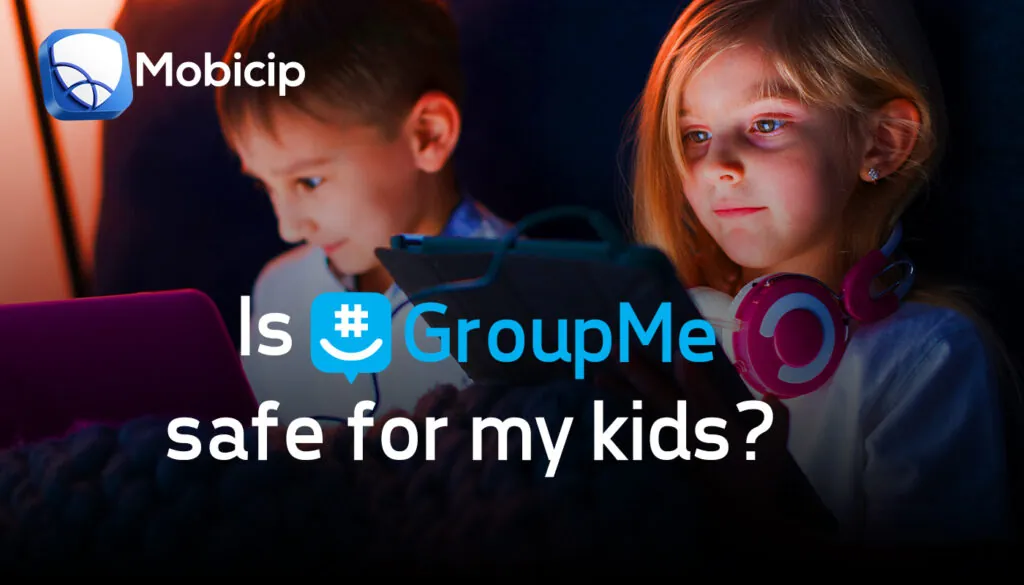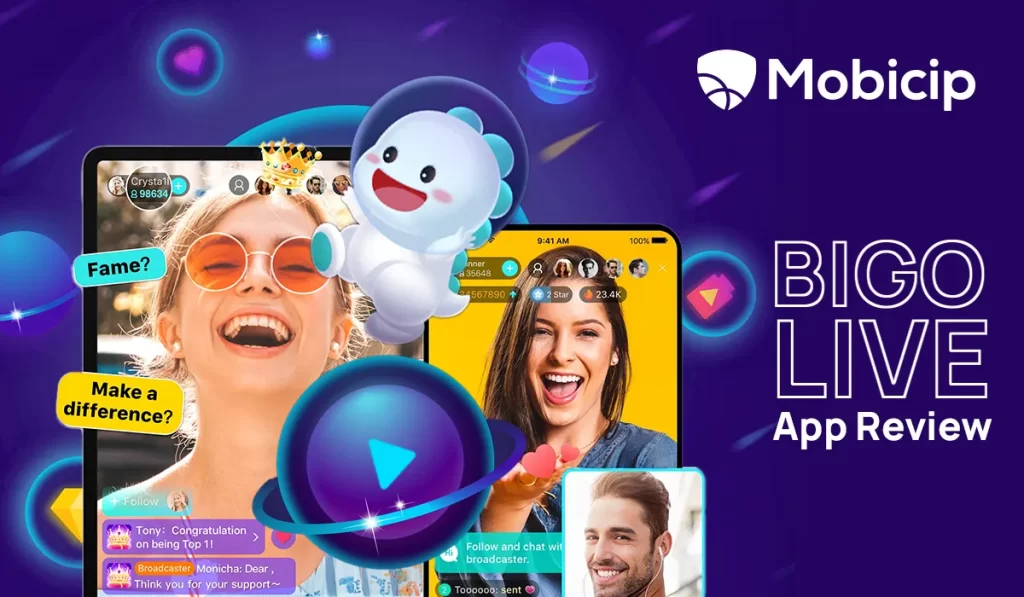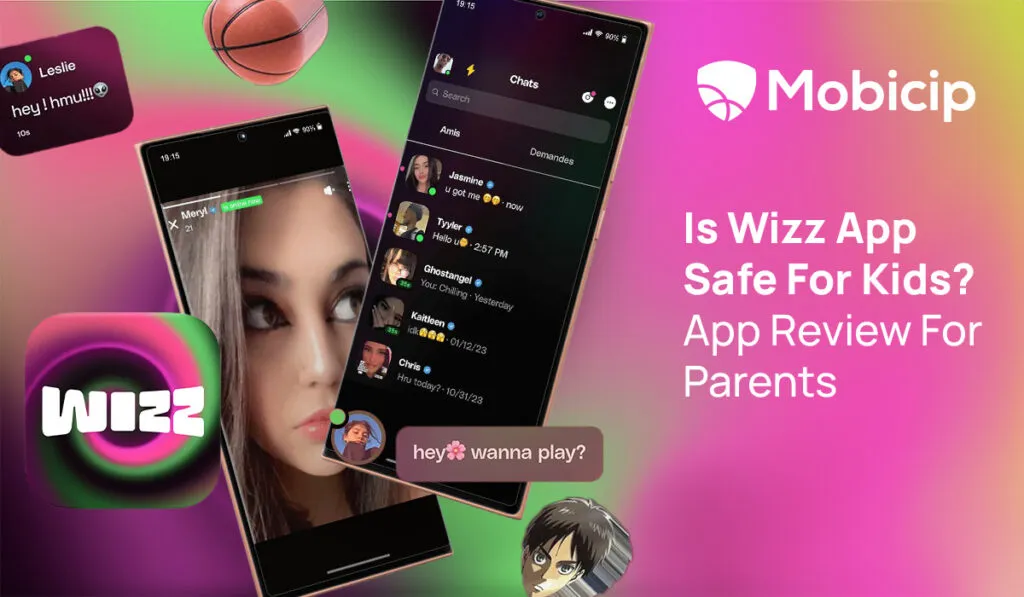What Parents Should Know About the Monkey App
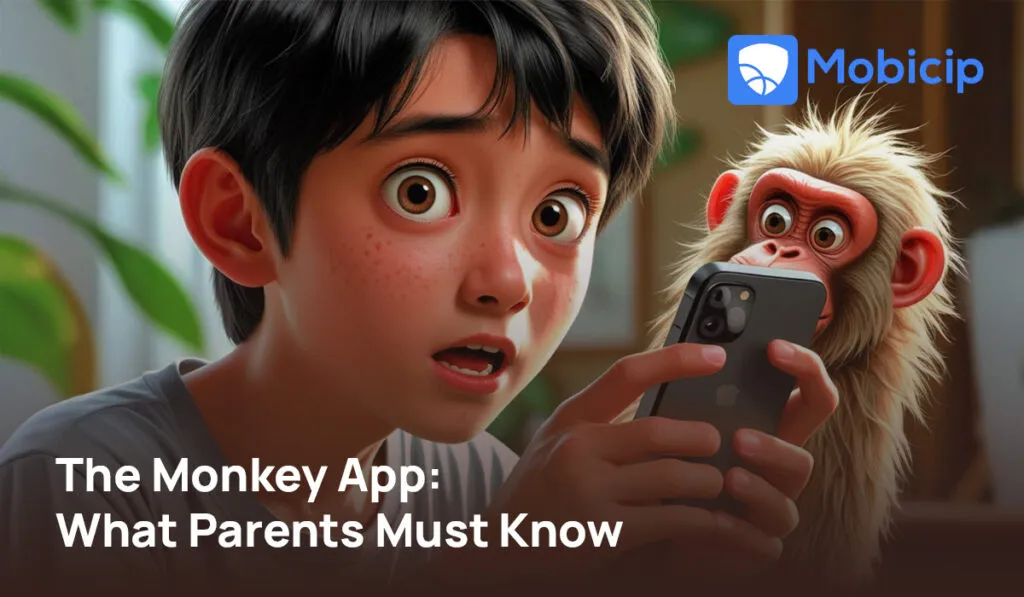
The Monkey app is one of the latest platforms making the rounds among teenagers. At first glance, it looks harmless enough: a social video chat app where users connect with strangers for short conversations. To many teens, it feels like a fun way to “meet new people” without leaving their bedrooms. But for parents, it raises important questions: Who are these strangers? What are they talking about? And is this safe for my child?
This guide will help you understand how the Monkey app works, why teens love it, and most importantly what risks you should be aware of.
How the Monkey App Works
Monkey is essentially speed dating meets Snapchat. Users are randomly matched with strangers for 15-second video chats. If both sides are interested, they can extend the chat or add each other on Snapchat. Features like swipe-to-match and gamified streaks make the experience addictive, encouraging teens to log in again and again.
The problem is that age verification is practically non-existent. The app claims to be for users 17+, but many underage teens bypass restrictions by simply entering a fake birthdate. If age verification on the internet is a locked door, most kids have already found the spare key under the doormat.
Why the Monkey App Is Popular Among Teens
For teens, the appeal of Monkey can be summed up in two words: “What if?”
- What if I meet someone cool?
- What if my friends are on and I’m not?
Peer influence and FOMO (fear of missing out) drive much of the app’s popularity. Monkey is also easy to use, just open, swipe, and start chatting. Its vibe is a mash-up of Omegle’s random strangers and TikTok’s playful energy, making it feel both familiar and exciting.
As psychologist Jean Twenge notes in her book iGen, “Teens are not just using technology, they’re being shaped by it.” Monkey gives them novelty and connection but without much protection.
Key Risks Parents Should Be Aware Of
Exposure to Inappropriate Content
When your child connects with a stranger, there’s no filter guaranteeing what they’ll see. Many users have reported exposure to nudity, profanity, and adult themes. Repeated exposure can desensitize young minds, normalize harmful behaviors, or even cause anxiety. Think of it as digital roulette: sometimes you get a friendly chat, other times… well, not so much.
Cyberbullying and Harassment
Anonymity gives people courage unfortunately, often the wrong kind. Teens using Monkey may encounter bullying, insults, or verbal harassment. Even a 15-second encounter can leave a lasting sting. A Pew Research study found 46% of teens have experienced cyberbullying, and apps like Monkey often fuel this statistic.
Predatory Behavior and Grooming Risks
One of the gravest concerns is the presence of online predators. Monkey’s random matching makes it easy for predators to seek out vulnerable users. Law enforcement agencies have repeatedly warned about grooming behaviors in apps like Monkey, where predators build trust with teens before exploiting them. As the saying goes, “Predators go where the children are.”
Privacy and Data Concerns
To function, Monkey requires access to the camera and microphone. However, chats can be recorded or screenshotted without the other person knowing. With limited transparency about how user data is stored or shared, parents should approach with caution.
Mental Health Impacts
Constantly chatting with strangers can create roller-coaster emotions: one moment, your teen feels validated; the next, rejected or insulted. Over time, this can harm self-esteem and contribute to anxiety. Psychologist Sherry Turkle calls this the paradox of online connection: “We rely on technology for connection and intimacy, yet simultaneously expect less from face-to-face interactions and real-life relationships.”
Signs Your Child May Be Using the Monkey App
Parents often wonder: “How would I even know if my child is on Monkey?” Look out for:
- Secrecy about phone use or quickly hiding the screen when you walk by.
- Excessive screen time, especially late at night.
- Mood swings, irritability, or sudden changes in confidence.
You can also check app usage history and installed apps. Most importantly, talk openly with your child. A simple, “Hey, I heard about this app called Monkey, so what do you think of it?” can open doors for meaningful conversation.
Safer Alternatives to the Monkey App
If your child is craving social interaction online, consider safer platforms with strong moderation and parental oversight, such as:
- PopJam (for kids under 13)
- Messenger Kids (by Meta, with parental controls)
- Kinzoo (family-safe messaging)
These alternatives give children the social connection they want without exposing them to the wild west of the internet.
How Mobicip Can Help Parents Protect Their Children Online
This is where Mobicip can make a real difference. Mobicip is a trusted parental control solution designed to give parents peace of mind. With Mobicip, you can:
- Block risky apps like Monkey before they become a problem.(See why in our video)
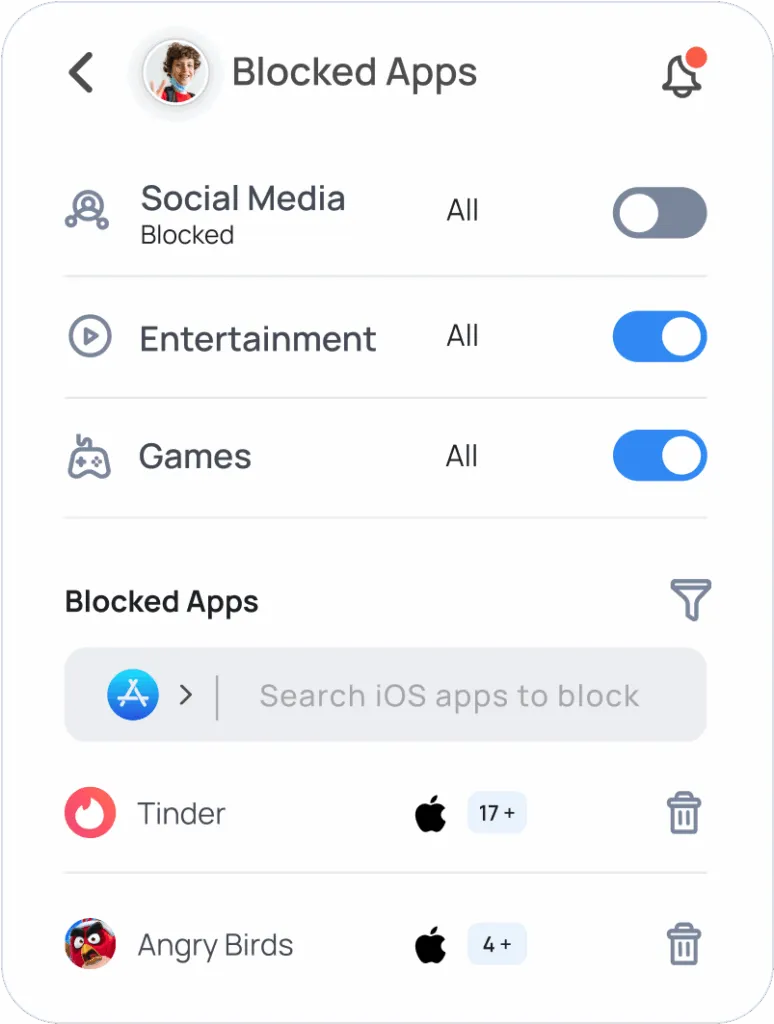
- Set screen time limits to keep digital life in balance.
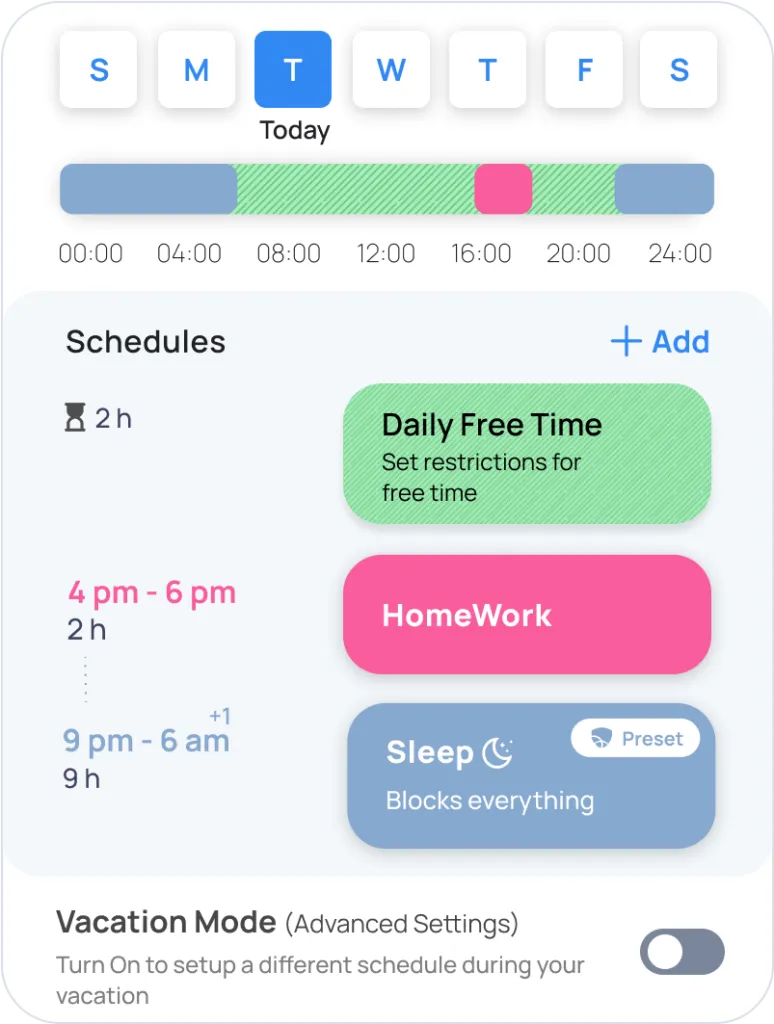
- View activity reports so you know where your child spends time online.
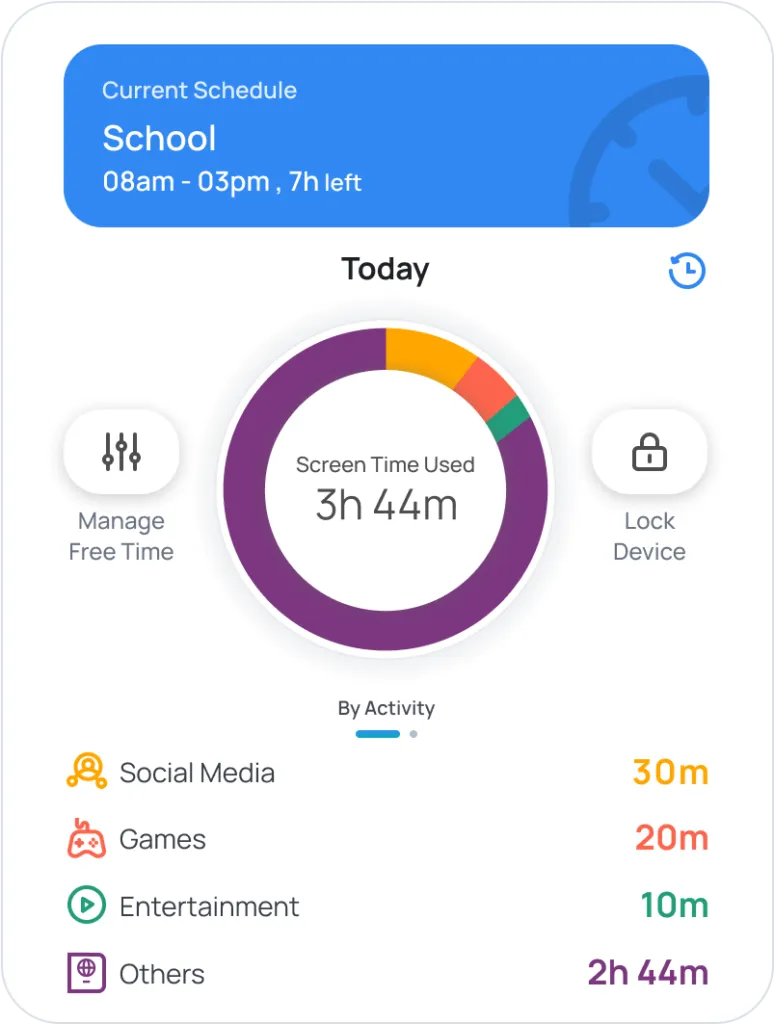
Mobicip empowers parents not to spy, but to guide kids to build healthy digital habits without constant conflict.
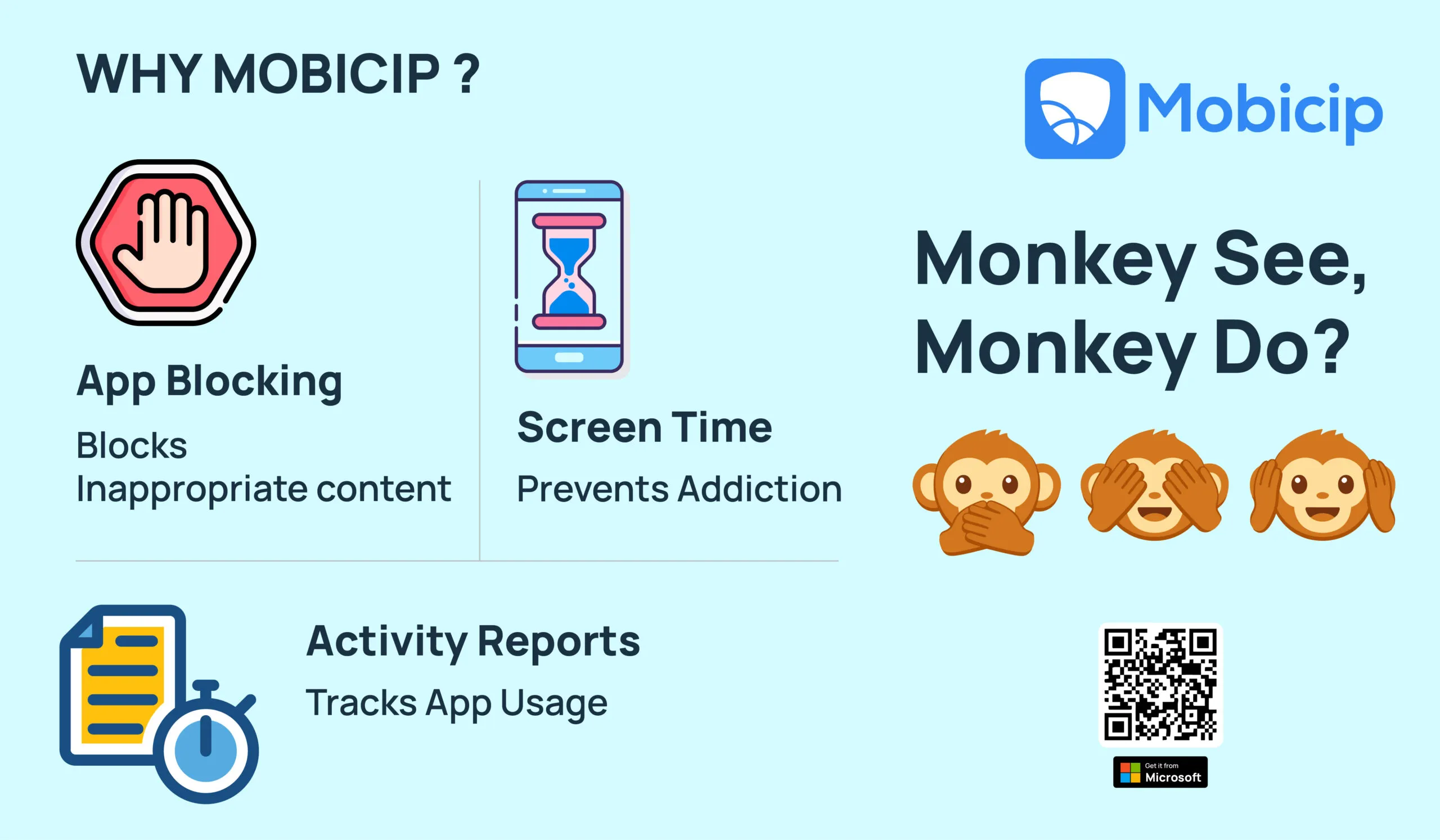
Final Thoughts
If you put a smartphone in a teenager’s hand, you’ve basically handed them the keys to a Ferrari without brakes, an exciting but potentially dangerous ride.
The Monkey app may seem like harmless fun to teens but parents should be aware of its serious risks. Remember that the internet never forgets and it’s rarely as friendly as it looks. By staying informed, keeping communication open and using tools like Mobicip, you can help your child enjoy the benefits of technology without falling prey to its dangers.



